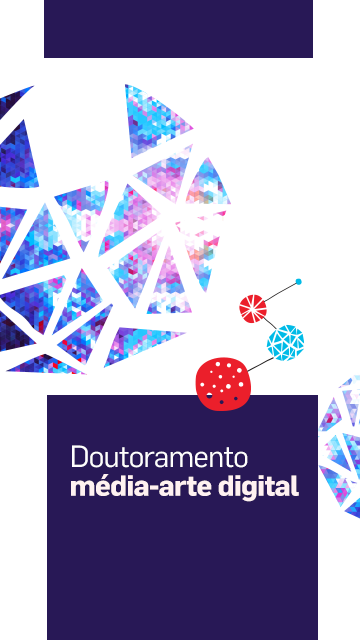
The PhD aims to train research-action competences for the most diverse areas of intervention of digital media art / multimedia art, at the level of experimentation, development and artistic, technological and communicational reflection, with solid skills in the application of digital media technologies, communication sciences and techniques of artistic intervention and critique. The doctors in this area should be able to take the lead in projects of experimentation/research-action, curatorship and artistic and intercultural intervention, both individual and collective, that encompass the development of new applications, artistic/cultural products and aesthetic narratives.
Coordinator:
Vice-coordinator:
Entry Requirements:
May apply for the doctoral course:
Teaching Mode: Hybrid: online open distance learning; intensive face-to-face sessions in the form of seminars, workshops and/or atelier.
The doctoral program has a duration of 3 years, for full time students, and 5 years for partial time students.
The first year embraces a set of compulsory learning units in the scientific areas of information and communication technologies, communication sciences and artistic expressions. These set of units constitute an advanced course in digital media arts, corresponding to 60 ECTS, divided in two semesters of 30 ECTS each.
The program’s second and third years are reserved for the preparation of the doctoral thesis corresponding to 120 ECTS. The doctoral program’s three years of duration correspond to a total effort of 180 credits ECTS which allow the access to the doctoral diploma in digital media arts.